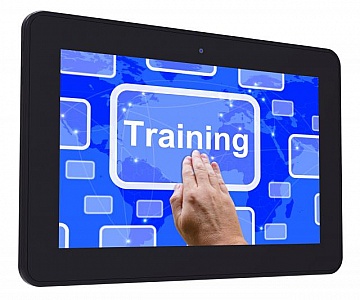
How to improve your self-awareness by following these 5 simple steps?
Self-awareness is having the conscious knowledge of our actions, emotions and thoughts. It is the needle of our moral compass that enables us to be aware of our decisions, and hopefully, make the right choice. Having self-awareness can help someone grow, improve their relationships, improve their self-love and a lot more.
Self-awareness is the ability to monitor your own emotions and reactions. It allows you to know your strengths, weaknesses, triggers, motivators, and other characteristics. Being self-aware means that you take a deeper look at your emotions, why you feel a certain way, and how your sentiments could turn into reactions.
Practicing self-awareness allows you to better react to situations or people who might set you off, which is a healthy skill to cultivate – especially as a leader. When you’re aware of your emotions and how you handle them, you’re better equipped to process and work through them, avoiding unnecessary conflict. This will also help you set a good example for your team and make them more comfortable approaching you with questions or concerns. Even if you’re not where you want to be as a leader, developing self-awareness and acknowledging areas you need to work on is the first step.
Team Inspiring Life provides you with the 5 steps to improve your self-awareness.
5 steps to improve self-awareness
1. Question your opinions and beliefs.
Challenging your opinions and beliefs is an amazing way to learn about who you are. It increases your awareness of your own thoughts, along with the biases and behaviors that stem from those thoughts. It’s worth noting this isn’t about trying to prove yourself wrong, though. Rather, it’s about recognizing the possibility that your opinions and beliefs can change—and giving them a chance to grow.

2. Identify what triggers your negative emotions.
Understanding what makes you mad, sad, stressed, or jealous can go a long way in terms of self-awareness. The reason? When you recognize what sparks your negative emotions, you can become more selective of the people, places, and situations you choose to engage with, says Pruden. It also helps you become more conscious of how you respond to your environment and things you can’t control.
3. Seek out new experiences.
One of the best ways to boost self-awareness is to immerse yourself in new experiences. This lets you step outside of your comfort zone, giving you a chance to learn how you act, think, and feel in unfamiliar situations. What’s more, it creates opportunities to discover more positive qualities about yourself, notes Craig.
After all, your comfort zone is a familiar space. It’s the psychological state where you exist on autopilot, complete with predictable thoughts and emotions. This limits your perspective to just part of who you are, rather than you as a whole person. Fortunately, a new experience doesn’t need to be complex or expensive. It can be as simple as trying a new hobby chatting with new people, or exploring a neighboring town. Heck, even cooking a new-to-you recipe counts as a new experience. Whatever you choose to do, these experiences will help you gain new outlooks on yourself.
4. Feedback from people about yourself
Often, learning about yourself means stepping outside of your own shoes. Ask someone you trust—like a sibling or close friend—to share their perspective on your attitudes, traits, or behaviors. This can help you become aware of the things you do and say, as well as how others perceive you. From there, you can use this info to explore aspects of yourself that you’d like to change or nurture.
Admittedly, accepting feedback gracefully isn’t easy. Remind yourself that truly constructive feedback isn’t an attack on who you are as a person. Instead, it’s a valuable tool that provides guidance for potential growth and self-development. While you’re at it, do your best to fully listen without getting defensive. This will make it easier for the other person to provide truly honest feedback.
5.Get clear on your core value.
Your core values are the principles that guide your life. They’re the “why” behind all that you say and do. And, when it comes to enhancing self-awareness, identifying those core values is key. When you’re clear on your values, you know more about what you’re seeking [in life]—as well as what you’re not. On the other hand, if you’re not clear on your values, you’ll [engage] in things that aren’t beneficial to you and maybe even unhealthy.
To clarify your core values, “reflect on times in your life when you felt happy, uplifted, and empowered”. This can help you recognize what is most meaningful to you, and ultimately, provide guidance for your future self.








Comments
Aw, this was an incredibly good post. Taking a few minutes and actual effort to produce a really good article… but what can I say… I put things off a whole lot and don’t seem to get anything done.
This is the right web site for everyone who would like to understand this topic. You realize a whole lot its almost tough to argue with you (not that I personally would want to…HaHa). You certainly put a brand new spin on a topic that’s been discussed for years. Wonderful stuff, just excellent.
This is a topic which is close to my heart… Best wishes! Where can I find the contact details for questions?
I like this site very much, Its a very nice billet
to read and find info..
Good article and straight to the point. I am not sure if this is in fact the best place to
ask but do you folks have any thoughts on where to employ some professional writers?
Thanks in advance 🙂 Najlepsze escape roomy